22 Product Management Books for PMs in 2024 (by Category)
Explore 22 product management books to boost your skills and become a more well-rounded, successful product manager.
A product manager’s role encompasses a broad set of skills. Effective product managers (PMs) are responsible for product strategy, design, and roadmapping—while leading a team and inspiring collaboration to achieve product success.
Reading the right books can be a game-changer for any PM eager to refine their craft. Expertise is continually broadening your horizons, expanding your knowledge, and learning from other’s successes and failures. Reading inspiring stories and learning about frameworks that have worked for top companies can set you and your team up for success.
The authors behind these essential reads bring years of experience, offering a treasure trove of insights you won’t want to miss. They’ve been in the trenches, navigated the challenges, and now, they’re ready to pass on their hard-earned wisdom to you.
Browse By Category
- Best books for the foundations of product management
- Best books to understand user psychology and engagement
- Best books for leadership and culture
- Best books for product strategy and innovation
- Best books with practical tools and techniques for product managers
- Best books for data-driven product management
- Best books for product management career development
Best books for the foundations of product management
These books cover the essential principles and frameworks of product management, making them ideal for newcomers and experienced PMs looking to revisit the basics.
1. Inspired: How to Create Tech Products Customers Love, by Marty Cagan

In Inspired, founder and partner at Silicon Valley Product Group, Marty Cagan, discusses techniques the best tech companies use to create products. This book details the ideal product journey for product managers who work with technology-based products, whether at a small startup or large enterprise. It offers an in-depth look at product strategies for top companies like Google, Adobe, and various other retailers and manufacturers that operate in technology.
2. Empowered: Ordinary People, Extraordinary Products, by Marty Cagan and Chris Jones

Empowered—Cagan’s sequel to Inspired—focuses more on organizations and their people than on the product. The book explores how the world’s most innovative companies thrive by empowering their teams to have a vision of the strategic objective of a project rather than just completing tasks. Through examples such as Amazon, Netflix, and Tesla, you’ll learn how to be a great leader by harnessing your team’s potential.
3. The Lean Product Playbook: How to Innovate with Minimum Viable Products and Rapid Customer Feedback, by Dan Olsen
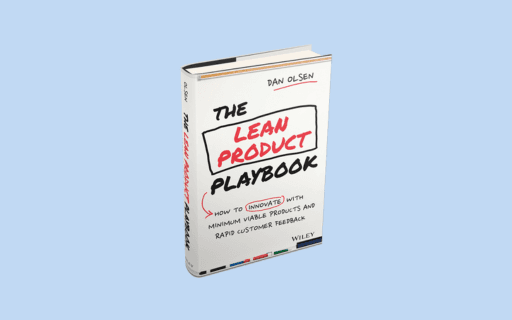
The Lean Product Playbook is the first of two books on this list about lean business and product development methods. Full of step-by-step guidance, this book keeps product managers and other leaders in mind. It’s a practical guide to navigating the critical early phases of the product lifecycle, including strategy, deciding on a minimum viable product (MVP), prototyping, and testing.
4. The Product Book: How to Become a Great Product Manager, by Carlos Gonzalez De Villaumbrosia and Josh Anon

In The Product Book, the authors cover essential concepts and practices for product managers to excel at their roles. This guide dives deep into the product manager role. It covers every aspect, including understanding your users, defining product strategy, and working closely with your teams to build products people love. Through real-life examples and insights from experienced product leaders, you’ll gain practical knowledge and actionable advice to apply in your PM work.
5. Escaping the Build Trap: How Effective Product Management Creates Real Value, by Melissa Perri

Escaping the Build Trap focuses on customer-centric marketing—a pillar of product management. It explains how businesses can fall into the “build trap” by designing products geared more toward the company’s schedule than the customer’s needs. Perri discusses how an effective product manager can achieve a balance between the two by changing the focus from output to functionality. She offers other insights, including what makes a creative, effective product manager and what that career path looks like.
Best books to understand user psychology and engagement
These books help you understand what drives user behavior and how to engage customers effectively.
6. Game Thinking: Innovate Smarter & Drive Deep Engagement with Design Techniques from Hit Games, by Amy Jo Kim

Game Thinking takes an interesting approach to product design by examining how video games drive user engagement. Kim details a step-by-step system for creating products so essential to their users that they become “superfans”—extremely loyal customers a company never has to worry about retaining. She shares wisdom gained from years of working on games like The Sims and Rock Band, which you can apply to lean and agile product development. This book is a valuable tool for any product manager who wants to create an innovative product.
7. Drive: The Surprising Truth About What Motivates Us, by Daniel H. Pink
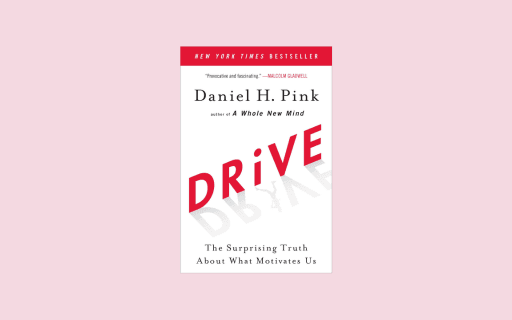
Drive will make you think about motivation differently—and as a leader, this can boost your team’s productivity and happiness. Pink explains why leading companies offer employees a level of compensation that removes money as a motivating factor. It discusses the tools you can give your team to ensure they stay inspired and productive. Drive looks at how autonomy can increase engagement, mastery can maximize competency, and purpose can drive retention.
8. Hooked: How to Build Habit-Forming Products, by Nir Eyal
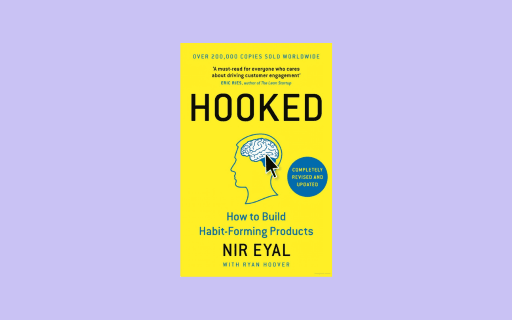
Hooked dives into successful companies' processes to achieve user engagement and examines the characteristics of the products that create loyal customers. Written for product managers and other managerial roles, this book explains the “Hook Model”—a step-by-step guide that helps you build a product that can become intricately woven into the day-to-day lives of its users.
Best books for leadership and culture
These books offer insights into leading teams, fostering a productive culture, and managing for success.
9. Dare to Lead, by Brené Brown
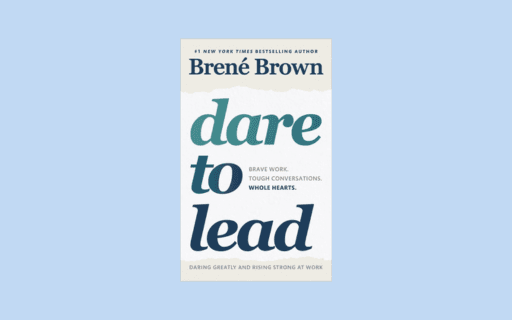
A #1 New York Times Bestseller, Dare to Lead coaches you on being a strong leader through empathy, connection, and courage. It’s easy to become singularly focused on a product or a deliverable and forget that you’ll need a confident and supported team to reach your goals. Brown shares insights into vulnerabilities shared by the best leaders in the world and the difficult conversations they have with their teams to ensure alignment and inclusivity.
10. The Making of a Manager: What to Do When Everyone Looks to You, by Julie Zhuo
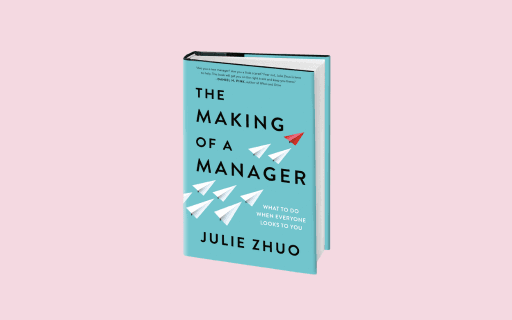
In The Making of a Manager, Zhuo shares the story of her daunting journey to becoming a manager and how she overcame the self-doubt and anxiety that can accompany oversight responsibilities. She then shares everything she has learned through years of managing teams and people, sharing examples, insights, and practical advice on how to get the most out of the people whose work you depend on.
11. Leaders Eat Last: Why Some Teams Pull Together and Others Don’t, by Simon Sinek
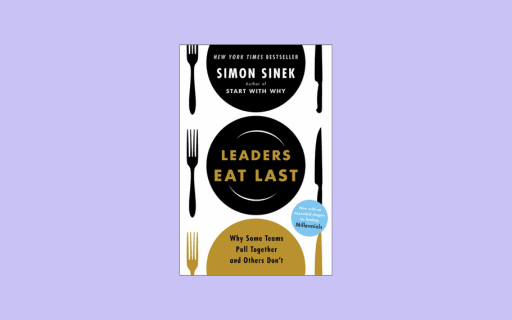
Leaders Eat Last focuses on why the strongest leaders foster trust and cooperation by prioritizing their team’s needs. The book is built on the understanding that safe, collaborative, and supportive environments enable teams to weather challenges and embrace innovation. Sinek uses real-life examples to illustrate how leaders who create a “circle of safety” can foster loyalty and commitment, leading to high-performing teams that achieve remarkable results.
12. Be The Unicorn: 12 Data-Driven Habits that Separate the Best Leaders from the Rest, by William Vanderbloemen
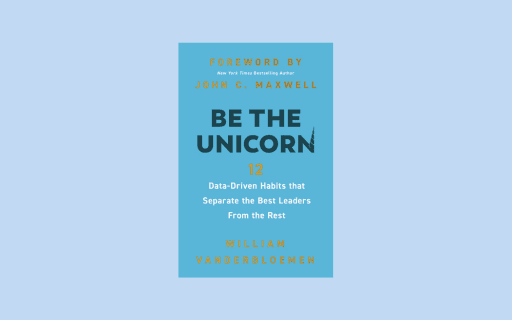
Be The Unicorn offers insights into exceptional leadership practices and the impact of data-driven strategies on leadership effectiveness. For product managers, this book is a roadmap to becoming indispensable in a field that demands innovation, agility, and a keen problem-solving ability. This book sheds light on the habits that define successful leaders and provides practical advice for integrating them into daily work life. Each habit is backed by complex data and followed by actionable steps to cultivate these qualities yourself.
13. Measure What Matters, by John Doerr
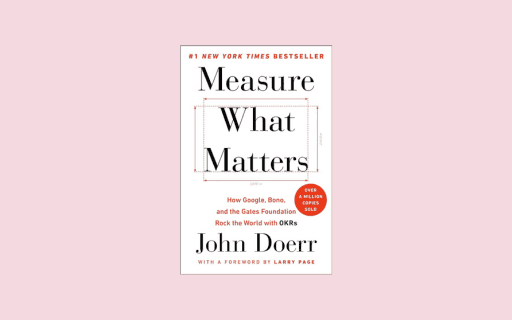
In Measure What Matters, venture capitalist John Doerr shares what he learned after discovering in the 1970s how objectives and key results (OKRs) could help organizations. The goal-setting method has become standard practice for facilitating collaboration, clarifying priorities, and creating a transparent business where all goals are aligned. Through case studies, quotes from top Silicon Valley leaders, and actionable advice, Measure What Matters will change your goal-setting approach and harmonize your team.
Best books for product strategy and innovation
This selection is ideal for PMs looking to navigate the complexities of market dynamics and innovate within their organizations.
14. The Lean Startup: How Today’s Entrepreneurs Use Continuous Innovation to Create Radically Successful Businesses, by Eric Ries
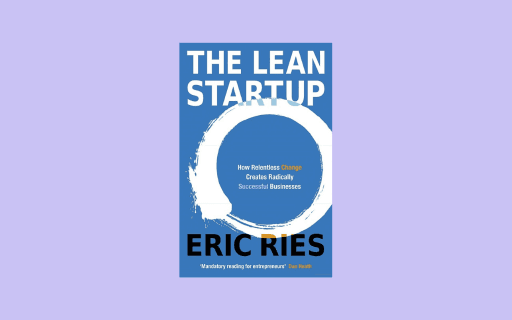
The Lean Startup is a popular book for startups—especially software companies. It builds on the lessons learned from an expensive failed product launch that didn’t adequately account for the wants of its target customers. Ries emphasizes innovation, creativity, and scientifically backed methods, offering advice about succeeding in the early phases of the product lifecycle. It’s easy to focus entirely on a product when you’re strategizing; this book reminds you to account for the audience the product is for.
15. Crossing the Chasm: Marketing and Selling Disruptive Products to Mainstream Customers, by Geoffrey A. Moore
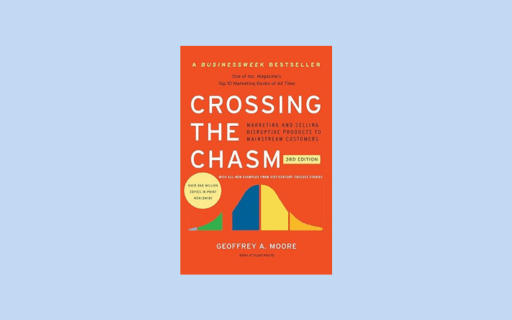
First published in 1991 and last updated in 2014, Crossing the Chasm changed the conversation around entrepreneurial marketing. The book is essential if you’re introducing a product that has disruptive potential in your industry. It can help you understand the importance of bridging the gap between the early, enthusiastic adopters of your technology and the majority who will wait to see if your product is worth discontinuing what they are already using. Even if your product doesn’t fit that description, Moore’s book offers a fascinating perspective on best practices in a product lifecycle.
Best books with practical tools and techniques for product managers
These books are for product managers who need actionable methods and processes to apply directly to their work.
16. Sprint: How to Solve Big Problems and Test New Ideas in Just Five Days, by Jake Knapp, John Zeratsky, and Braden Kowitz
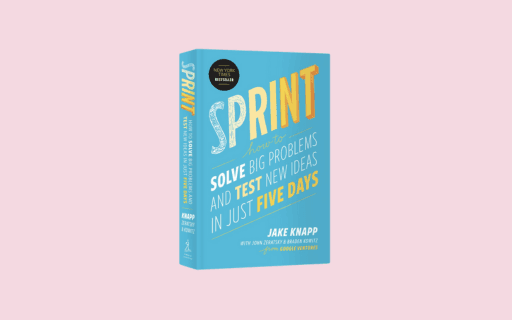
Every great project started as an idea. So, how quickly can you confidently get from the opaque early phases to how your product will look and function in real life? Sprint elaborates on the five-day problem-solving method that originated at Google Ventures and has since been used at many other companies. The book looks at how to avoid wasting resources through endless testing and how to move from prototype to final decision in one business week.
17. Continuous Discovery Habits: Discover Products That Create Customer Value and Business Value, by Teresa Torres
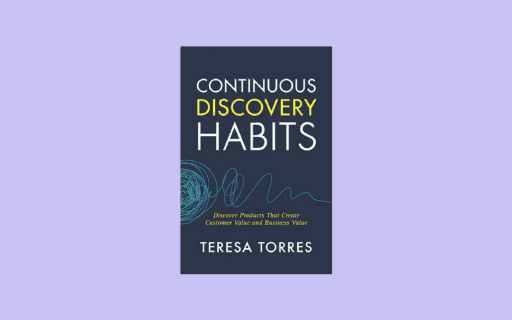
Continuous Discovery Habits is a guide to applying discovery methods during all phases of product development. As a product moves through development, it’s easy to become untethered from the customer experience. This book provides advice on delivering products that meet business and customer needs, making it an excellent resource for product managers—especially as a follow-up to Cagan’s Inspired.
18. Product Roadmaps Relaunched: How to Set Direction While Embracing Uncertainty, by C. Todd Lombardo, Bruce McCarthy, Evan Ryan, and Michael Connors

Product Roadmaps Relaunched is a practical guide to creating one of the most valuable resources a project manager can have—a reliable product roadmap. It includes advice for leadership, prioritizing, development, and communication. The interviews and case studies offer glimpses into successful real-world roadmaps and help PMs balance unwavering priorities with inevitable changes and challenges.
Best books for data-driven product management
These books are perfect for harnessing data and analytics to inform product decisions.
19. The Insights Driven Product Manager, by Corinna Stukan

The Insights Driven Product Manager is a guide on removing the clutter from crucial information to make better product decisions. Any successful organization understands the need for relevant data in the modern marketplace. This book zeros in on what data to use when making critical decisions for your product plan, including what metrics to track and when to use qualitative or quantitative data. Written for product managers and leaders at tech companies, it’s full of advice on becoming more insights-driven, creating product roadmaps, and other essential facets of the PM role.
20. Product Analytics for Dummies, by Amplitude and Wiley
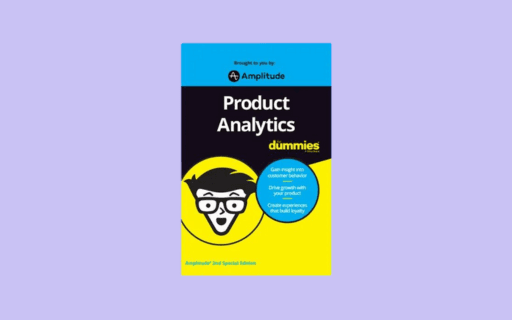
Understanding product analytics is the first step towards delivering continuous value to customers and driving growth with your digital product. That’s why the Amplitude team, working with Wiley Books, put together Product Analytics for Dummies to help you get started. The resource lets you answer questions like, “How do I know the best time to experiment with the customer experience?” and “What kinds of recommendations have the most impact on customers?”
The book also explores data management, behavioral targeting, product-led growth, and personalized experiences, which are fundamental to managing a successful product.
Best books for product management career development
These books are mainly for folks preparing for product management interviews and looking to enhance their problem-solving skills in a job interview context.
21. Decode and Conquer, by Lewis C. Lin
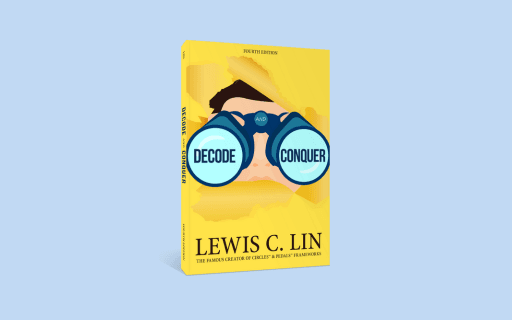
Decode and Conquer aims explicitly to prepare for product management interviews. The book introduces readers to frameworks such as CIRCLES, AARM, and DIGS, specifically designed to tackle product design, metrics, and strategy questions. These frameworks empower candidates to approach their interviews with a structured and confident mindset, enabling them to articulate their thoughts and solutions clearly and effectively.
22. Cracking the PM Interview: How to Land a Product Manager Job in Technology, by Jackie Bavaro and Gayle Laakmann McDowell
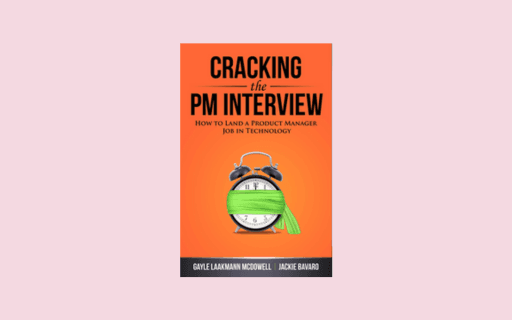
Cracking the PM Interview provides a deep dive into the various aspects of the product management interview process, including how to make your application stand out, what to expect in interviews, and how to prepare for common questions. It covers a wide range of topics relevant to aspiring product managers, such as product design, strategy, and analysis, offering readers a thorough preparation strategy.
This literature contains a wealth of knowledge that can transform companies and create dynamic, innovative leaders. So, whether you’re looking to implement OKRs, improve your leadership skills, create a product roadmap, or hone any other skill related to the PM role, assembling a reliable arsenal of top books for product managers is a great place to start.
Are you interested in taking your learning beyond the books? Consider attending a product-led growth webinar or workshop today.

Mallory Busch
Former Senior Content Marketing Manager, Amplitude
Mallory Busch formerly ran the Amplitude blog, frequently named a best blog for product managers. She also created AmpliTour, the live workshop for beginners to product analytics and 6 Clicks, the Amplitude video series. She produced the Flywheels Playbook, wrote The Product Report 2021 and produced The Product Report 2022. A former developer and journalist, Mallory's written work and coding projects have been published by TIME, Chicago Tribune, and The Texas Tribune. She graduated from Northwestern University.
More from Mallory





